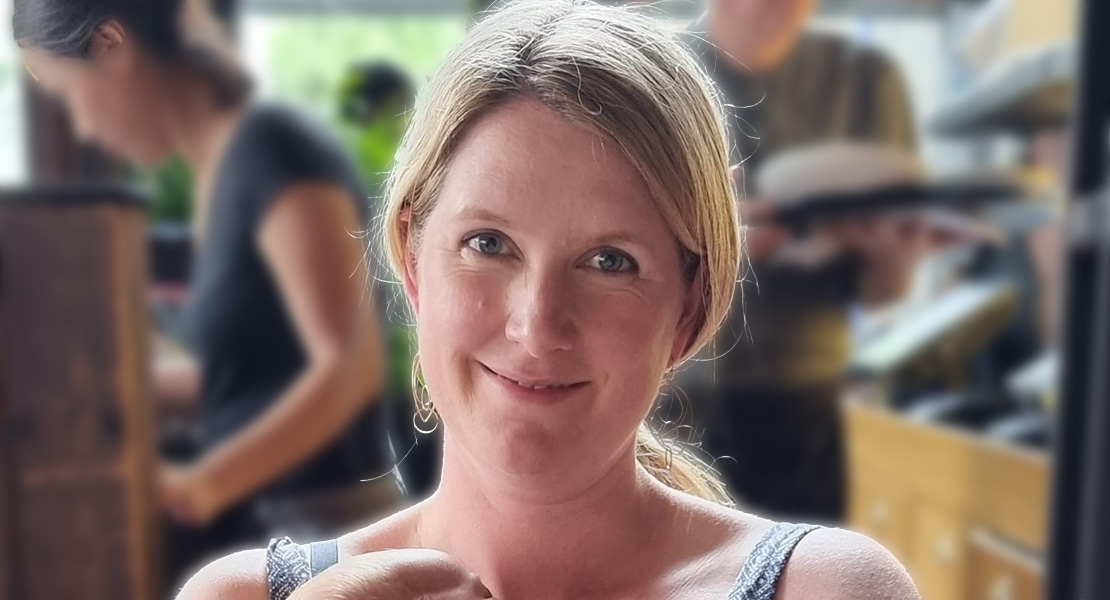
This story is adapted from an article originally written on 17 August 2023
Alexis Faulkner from Surrey took part in the REACH Pregnancy Circle Trial at at Surrey and Sussex Healthcare NHS Trust.
The study
The study is evaluating a model of group antenatal care, called ‘Pregnancy Circles’. This is the first randomised controlled trial (RCT) of group antenatal care in the UK. It is also the largest trial of its kind in the world to date.
The Pregnancy Circles model brings together around 8 to 12 pregnant women who are at similar stages of pregnancy and who live near each other, for clinical care, information-sharing and social support.
The Pregnancy Circles aim to provide a woman-centred, community environment for antenatal care. If the group agrees, then partners are also invited to come along.
Alexis has recently had her second child and during her first pregnancy was given the current practice of antenatal care.
Alexis' story
"I was told about Pregnancy Circles during my first midwife appointment and then sent further information. At that point, I decided I wanted to find out more information and someone rang me to explain what taking part would mean and talk me through the process. It was explained to me that I could be allocated to either the control group (usual antenatal care) or to a Pregnancy Circle Group. I decided to go ahead and I was allocated a Pregnancy Circles Group.
"I began attending the sessions when I was 14 weeks pregnant. The group sessions took place when the normal midwife appointments were scheduled at 14, 23, 26, 29, 32, 34, 38 weeks. I would have gone to the 40 week session but I’d already had my baby by then.
"Instead of taking 15 to 20 minutes, the group sessions lasted two hours. The sessions did take around three hours in total, including travelling time during the working day. I was lucky because my work is flexible but that may not be the case for others.
"There was more consistent contact with the same midwives and the ongoing relationship was very reassuring. As you were with the same group of women, you were able to develop connections with people in your community. This was important to me because I am new to the area. There were 8 of us doing it, and we made great connections. We are all meeting regularly now and using each other as a soundboard.
"I’ve developed a strong bond with these ladies.
"Also, the learning aspect was useful. You have to do your own urine tests and blood pressure checks at the beginning of the session, so you become aware of what you are measuring in your body and what the readings mean. I was much more aware of it than when someone else was doing it for me as I was not focused on what they were telling me or what was going on in my body in the same way. It was a real benefit to understand more about the process.
"The reason why I took part in the Pregnancy Circle study was to try something new and innovative, which is only positive. I found it a very positive experience.
"The trial was not the first time I was involved in research as during my first pregnancy I took part in a research study which looked at connecting changes in your eye to whether you are likely to have complications in the pregnancy. I did, however, get more information about what was happening with me during the pregnancy. Research is a brilliant way to learn about the NHS and receive more information about what is happening during the pregnancy. It did not take any more effort for me."
How you can get involved with research
Sign up to Be Part of Research to be contacted about a range of health and care research. Or check out our full list of studies to see if one is right for you.
And if taking part in a study doesn’t feel right at the moment there are other ways to get involved in research.




